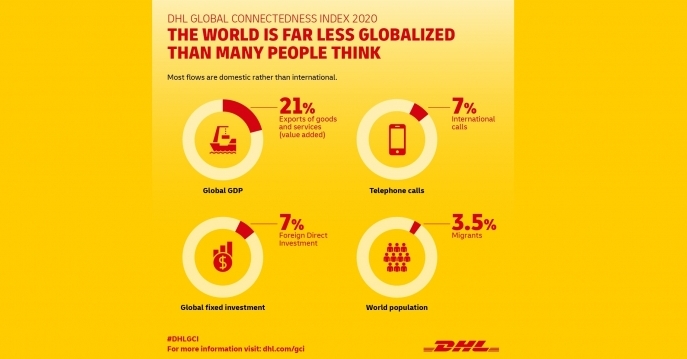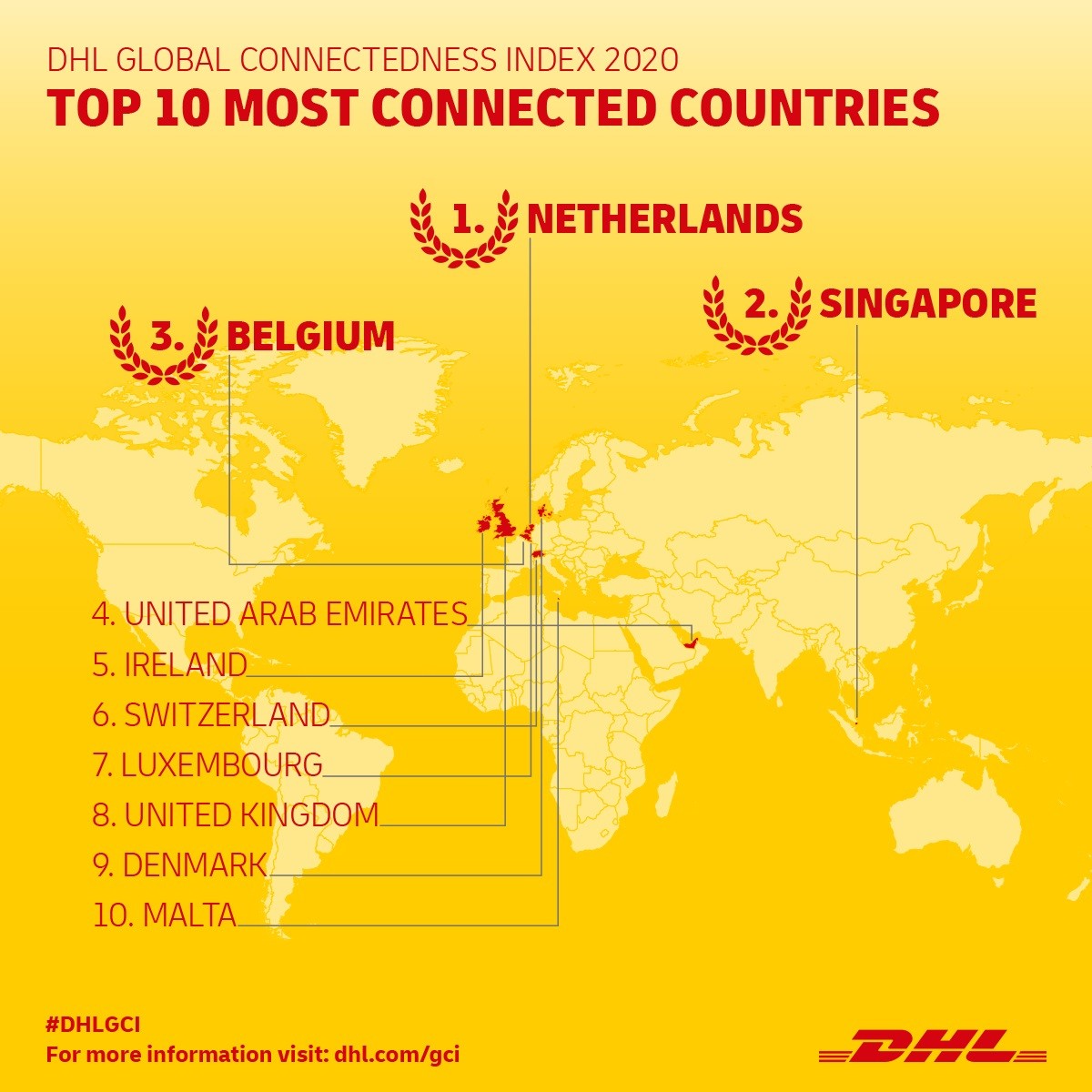6 Asia Pacific nations ranked among top 30 in DHL Connectedness Index
December 3, 2020: DHL and the NYU Stern School of Business today released the DHL Global Connectedness Index 2020 (GCI) with six Asia Pacific countries ranked in the top 30 for overall connectedness with Singapore ranked 2nd, Malaysia 16th, Taiwan (China) 19th, South Korea 22nd, Hong Kong S.A.R. 25th, and Thailand at 30th.

December 3, 2020: DHL and the NYU Stern School of Business today released the DHL Global Connectedness Index 2020 (GCI) with six Asia Pacific countries ranked in the top 30 for overall connectedness with Singapore ranked 2nd, Malaysia 16th, Taiwan (China) 19th, South Korea 22nd, Hong Kong S.A.R. 25th, and Thailand at 30th.
“Singapore took the top spot on the depth scale, which measures international flow relative to domestic activity, followed by Hong Kong S.A.R. at a close second. On the breadth dimension, which captures whether a country's international flows are spread out globally or more narrowly focused, Asia Pacific countries also scored well, with South Korea and Japan coming in at fifth and sixth respectively,” said the release.
The list of economies that have punched well above their weight in terms of international flows are led by Cambodia, Singapore, Vietnam, Malaysia, the Netherlands, Malta, the United Arab Emirates, Mozambique, Hungary, and Thailand. Fully half of these top 10 countries are located in Southeast Asia, a region where countries tend to have unusually high trade depth. The report finds that Southeast Asian countries benefitted from linkages with wider Asian supply chain networks as well as ASEAN policy initiatives promoting regional economic integration.
Ken Lee, CEO of DHL Express Asia Pacific, said, "Over the years, globalization and greater international connectedness have not only raised the living standards and income levels of people all over Asia, it has also helped to keep trade and critical supplies moving during challenging times such as during this pandemic. Greater international connectedness drives economic recovery and prosperity, and at DHL Express we have seen how the growth of cross-border e-commerce has built great businesses and improved lives across the region. With the recent signing of the RCEP, we are confident that Asia Pacific countries will bounce back from this pandemic stronger and become even more connected."
DHL Global Connectedness Index 2020 (GCI)
The report, now in its seventh edition, is the first comprehensive assessment of globalization during the spreading Covid-19 pandemic. It tracks international flows of trade, capital, information and people across 169 countries and territories. After holding steady in 2019, current forecasts imply that the index will fall significantly in 2020 due to the distancing effects of Covid-19 on societies, such as closed borders, travel bans and grounded passenger airlines. Nonetheless, the pandemic is unlikely to send the world's overall level of connectedness below where it stood during 2008-09 global financial crisis.
John Pearson, CEO of DHL Express, said, "Connected supply chains and logistics networks play an essential role in keeping the world running and stabilizing globalization especially at a time of a crisis that spans our globe. The recent vaccine breakthrough has put a spotlight on the systemic importance of fast and secure medical logistics dependent on a worldwide interconnected network that effectively ensures international distribution."
GCI lead author Steven A. Altman, Senior Research Scholar and Director of the DHL Initiative on Globalization at the NYU Stern School of Business, said, "This report shows that globalization did not collapse in 2020, but that the pandemic did transform -- at least temporar¬ily -- how countries connect. It also demonstrates both the dangers of a world where critical linkages break down and the urgent need for more effective cooperation in the face of global challenges. Stronger global connectedness could accelerate the world's recovery from the Covid-19 pandemic, as countries that connect more to international flows tend to enjoy faster economic growth."




